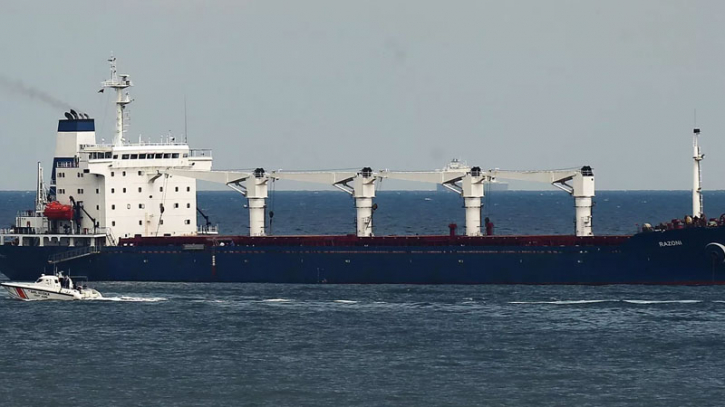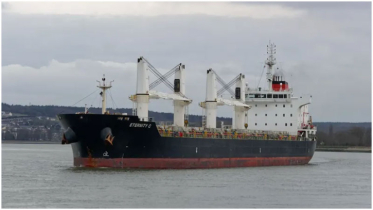Russia to continue food supplies to global south despite grain deal suspension

Russia suspended the year-long Black Sea Grain Deal after the West failed to implement its part of the agreement.
"Russia’s decision to end the grain deal was expected," Dr. Anuradha Chenoy, a retired professor from the Centre for Russian and Central Asian Studies at Jawaharlal Nehru University, told Sputnik. "The collective West and Ukraine have continuously violated their part in the Grain Agreement as signed between Russia, Turkiye and the UN."
The grain deal expired on July 17 with Russia having repeatedly warned the West it would not extend the agreement until and unless its demands concerning Russian agricultural and fertilizer exports were met.
While Russia has fully implemented its part of the Black Sea Grain Initiative signed in July 2022 by Russia, Ukraine, Turkiye, and the United Nations, the US and the EU failed to lift or ease sanctions preventing Russia's shipments of grain and fertilizers.
Russia's Rosselkhozbank has remained disconnected from SWIFT, with the EU unwilling to lift restrictions on the nation's agriculture-focused bank, despite earlier agreements. Likewise, Western shippers and insurers still refuse to transport Russian agricultural goods because of sanctions. In addition, the Togliatti-Odessa pipeline - which was used to transport Russian ammonia fertilizer to the Black Sea port of Odessa - was blasted by Ukrainian saboteurs in June.
Nonetheless, Kremlin spokesperson Dmitri Peskov stressed on Monday that as soon as the West implements its part of the deal, Moscow would resume the agreement.
"We are suspending the grain deal. If [the West] fulfill[s] the promises that they gave [Russia], then we are ready to resume it. But I don't think it would be quick and easy. Until now, [Western countries] could not agree among themselves what and how to restore to keep the deal in place," Victor Nadein-Raevskiy, a senior researcher at the Russian Academy of Sciences, told Sputnik.
Who Benefitted the Most From Grain Deal?
As per the UN, the EU emerged as the main beneficiary of the Black Sea Grain Deal: 38% of all grain was sent to the Old Continent; another 30% went to Turkiye; and 24% to China.
"The EU benefited a lot," Nadein-Raevskiy agreed, adding that on the EU's periphery, many countries have suffered from the flood of cheap Ukrainian grain.
"Although being of low quality, Ukrainian grain is cheap, and this led to the demise of Polish, Romanian, Hungarian, Bulgarian and so on [agricultural] producers," the expert continued. "They all began to impose sanctions against Ukrainian grain, because it led to dumping prices and, accordingly, to a drop in the profitability of agriculture, grain farming in a number of countries in this new Europe. The Poles got a very big slap in the face because of this."
In April, Poland, Slovakia, Hungary, Bulgaria introduced a temporary ban on Ukraine's agricultural products. Previously, the countries of Central Europe repeatedly called on Brussels to move all surplus grain out of their states toward Africa and the Middle East for humanitarian purposes within the framework of the EU-Ukraine Solidarity Lanes.
However, those who had not benefited from the deal were vulnerable developing nations. Only 2% of grain has been supplied to the Global South despite the West's earlier declarations that the whole idea behind the deal was to feed the world's poorest countries.
Russia did not benefit, either. Because of the discount in prices for Russia's grain – formed as a result the grain deal – the grain industry of the Russian Federation lost about $1 billion over the year, Arkady Zlochevsky, head of the Russian Grain Union (RGU), stated at a press conference on Monday.
West's Propaganda Part of Hybrid War Against Russia
The West has already tried to pin the blame for the suspension of the Black Sea Grain Deal on Russia. The EU condemned Moscow, with European Union Commission President Ursula von der Leyen claiming that Russia's decision is a "cynical move".
For his part, US Secretary of State Antony Blinken – knowing that the West has not lifted a finger to implement its part of the agreement – criticized Russia in advance last week. As per Blinken, Moscow used the deal "as a weapon."
"The West will immediately put the entire blame on Russia," said Dr. Chenoy. "They will act innocent on the way that Russian ships have been blocked in Western ports, that Russian ships have been sanctioned; that insurance companies are under pressure not to insure Russian ships and the innocent on the planned attacks on Crimea that Ukraine is talking about and American national security people (Victoria Nuland) have been advertising, besides the attacks on Russian bridges. So, the Western media will step up the campaign to vilify Russia."
"Since the hundreds of sanctions placed on Russia have not worked so far, the West, however, will continue with this strategy as they believe in their own campaign," the Indian scholar continued, adding that the Western elites do not care about ordinary people in the Global South.
Through its propaganda campaign, the West is seeking to sever ties between the Global South, said the scholar, calling it a part of the overall US/NATO hybrid war against Russia.
"Information and legitimacy are a major part of the strategy of the collective West," she said. "They believe that if the countries dependent on Russian grain in the Global South are deprived of this grain, they will then turn against Russia. Given the position that the majority of countries have opposed sanctions – this de-legitimization of Russia is important for the West."
Russia Will Continue to Feed Africa and Asia
Nonetheless, Dr. Chenoy has no doubts that Russia will find a way to transport its own grain to poor developing countries.
"The last time the grain deal was ended, Russia sent many shiploads of grain to the countries of the Global South that needed them most. This was especially acknowledged by the African Union. I expect Russia will likely do the same," Chenoy said.
Despite the burden of sanctions, Russia managed to export over 15 million tons of grain, as well as a large amount of mineral fertilizers by November 2022. More than 90% of deliveries went to countries in Africa and Southeast Asia, Russian First Deputy Prime Minister Andrey Belousov told journalists at the time.
This spring, the Russian Federation supplied 4.9 million tons of wheat to foreign markets in May; five million tons in April; and 5.2 million tons in March. Among buyers of Russian grain are Egypt, Yemen, Brazil, Bangladesh, Oman, Mexico, Mozambique, Tunisia, Senegal, Tanzania and Rwanda, to name but a few.
In 2022, Russia updated the record for gross grain harvest: a total of 157.676 million tons was harvested, 29.9% more than in 2021. In 2023, the grain harvest in the Russian Federation is expected to be 123 million tons, including 78 million tons of wheat.
"As the [grain] deal was not implemented in its entirety, we redirected Russian exports through other channels, through other traffic flows," Nadein-Raevskiy said. "We increased [the supplies] for Asian countries. China is also our major customer. So, in principle, we have solved this problem. Well, besides, we reduced prices in order to stimulate the buyer. Now this issue is being addressed differently. The discounts that we provided to customers have seriously decreased. That is, we figured it out, we managed to cope with it."
The suspension of the Black Sea Grain Deal wouldn't mean the halt of food supplies to the Global South, the Russian expert emphasized. Russia will also continue free deliveries to the poorest countries of Africa and Asia, he said.
"On the one hand, it would seem to be completely unprofitable, but unprofitable from a financial point of view. The political aspect probably prevails in this case, and we are seriously strengthening our positions in those areas [in the Global South]," Nadein-Raevskiy concluded.
.png)




